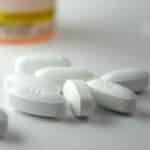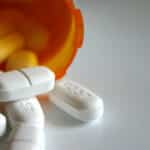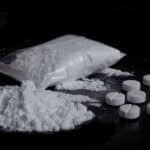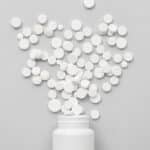Is Ritalin (Methylphenidate) An Amphetamine?
No, Ritalin is not an amphetamine. Ritalin is a brand-name prescription stimulant that has similar effects to amphetamines but has a different chemical structure.
Although Ritalin is not an amphetamine, it shares several similarities with this type of drug.
Both Ritalin and amphetamines are approved to treat attention deficit hyperactivity disorder, or ADHD. Both ADHD medications affect similar neurotransmitters in the brain.
Approved amphetamines for the treatment of ADHD include the prescription drugs Dexedrine and Adderall. These substances, along with Ritalin, have a high potential for substance abuse.
Differences Between Ritalin & Amphetamines
Ritalin’s main ingredient is methylphenidate hydrochloride. Methylphenidate is a central nervous system stimulant, a type of drug that increases brain activity. Methylphenidate may affect serotonin levels in the brain, while amphetamines may not.
Amphetamines are a specific class of stimulant drugs. Their chemical structures are all similar to amphetamine, the first drug of this type to be discovered.
Types of amphetamines include dextroamphetamine, the main ingredient in Adderall, and methamphetamine, a popular illicit drug.
Compared to Ritalin, the effects of amphetamines may be long-acting. You may feel the positive effects of Ritalin for a shorter time than substances such as Adderall.
Similarities Between Ritalin & Amphetamines
Ritalin and amphetamines can be prescribed to relieve ADHD symptoms.
They can also treat narcolepsy, a sleep disorder. Ritalin and prescription amphetamines come in both immediate-release (Ritalin, Adderall) and extended-release formulations (Ritalin SR, Adderall XR).
Ritalin and amphetamines can work on the central nervous system (CNS) in similar ways. Both types of drugs can affect norepinephrine and dopamine levels. Changing these neurotransmitter levels can help patients in the treatment of ADHD by increasing wakefulness and focus.
Methylphenidate, dextroamphetamine, and amphetamine share common side effects. Dry mouth, loss of appetite, and high blood pressure have been observed in patients taking all three substances.
Controlled Substance Status
Ritalin, Adderall, Concerta, and Vyvanse are all schedule II controlled substances, according to the U.S. Drug Enforcement Administration. Taking them can cause long-term substance use disorders and health effects. Long-term side effects of stimulant abuse may include:
- mental health problems
- psychosis
- weight loss
- cardiovascular and heart problems
- tachycardia (increased heart rate)
Stimulant ADHD medications may be abused by adolescent, young adult, or adult ADHD patients, populations where the use of stimulants is approved.
Treatment Options For Stimulant Medication Misuse
Ritalin’s potential for drug abuse is one concerning similarity it shares with amphetamines.
Treatment for stimulant medication abuse may depend on the patient’s specific health profile and history of substance use. General treatment programs may include behavioral therapy, the use of dietary supplements, and regular appointments with healthcare professionals.
For information on our outpatient treatment options, please contact us today.
Sources
Written by
Northeast Addition Editorial Team
©2024 Northeast Addition Center | All Rights Reserved
This page does not provide medical advice.







